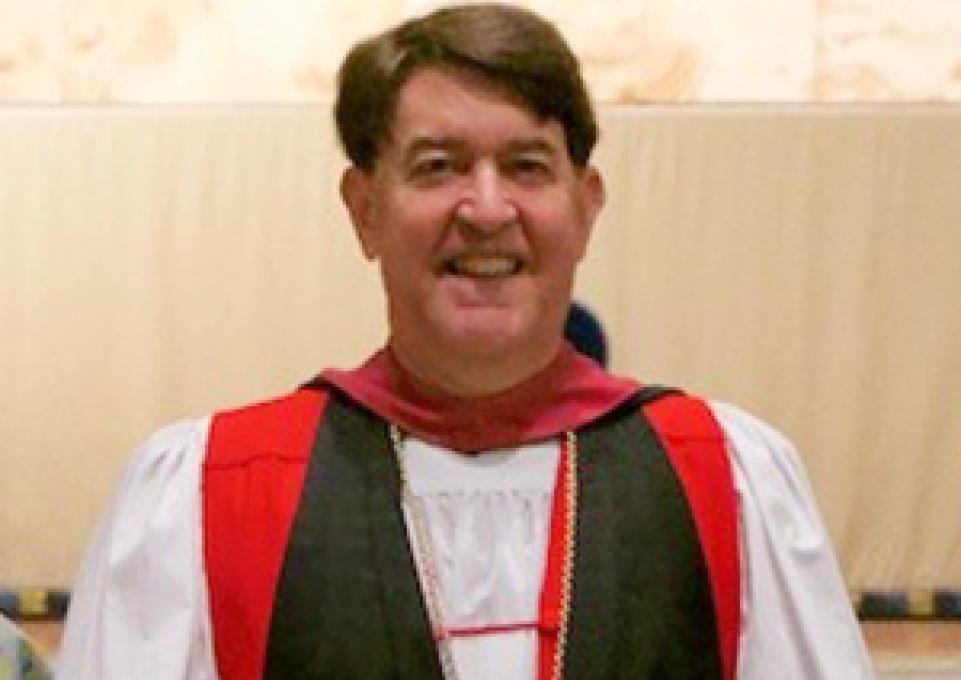
In 2014, when meeting the Rt. Rev. William Franklin at the Thursday Club, one of the country’s oldest literary societies, Andrew Nicholls, professor and chair of history and social studies education, realized they had much in common, namely a love of sixteenth- and seventeenth-century British history and the Protestant Reformation.
“We were both interested in the power and politics of the Episcopacy,” Nicholls said of Franklin, who serves as the bishop of the Episcopal Diocese of Western New York. The two served together on a panel about historical applications of episcopal authority for the New York State Association of European Historians in fall 2014 and Nicholls asked Franklin if he’d be interested in co-teaching a graduate course.
The two have just wrapped up a spring course, “Doubting Thomases: Wolsey, More, Cromwell, Cranmer, and the Making of the English Reformation,” with 15 students.
This was far from Franklin’s first time in front of a classroom. Before his ordination as a priest, he taught theology, church history, and the humanities and served in administrative roles at several institutions of higher learning including Harvard Divinity School, Yale Divinity School, and the Pontifical University of St. Thomas Aquinas in Rome.
Franklin said he wanted to teach the course with Nicholls for purely academic reasons and with no monetary compensation. To thank him for his contribution, the History and Social Studies Education Department designated Franklin its first E.O. Smith Community Fellow—in honor of the late department chair and history professor E.O. Smith, who passed away in March 2014.
“This is the best instance of academic freedom,” Nicholls said. “A number of colleagues have brought in guest lecturers, but no course I know of has been built from the ground up with a visiting academic who also is a religious figure.”
Since being appointed bishop in 2010, Franklin said he’s made it a mission to connect the Episcopal Church with other institutions in the community. “Working with Andrew and teaching this course is part of that,” he said.
Likewise, Nicholls noted that it’s good for students to see the college collaborating with members of the community and to see that in higher education, “The bishop and I don’t agree on everything. We can agree to disagree.”
The course integrated contemporary cultural pieces such as Hilary Mantel’s 2009 historical novel Wolf Hall, which was made into a PBS miniseries, and the 1966 film A Man for All Seasons, with academic texts.
“It’s an exciting way for history to come alive for students,” Franklin said. “This could be a model for another class—using novels and movies to help the student get to know the characters and then adding in the more rigorous academic elements.”
While he brought a bishop’s point of view to the course, Franklin said he made it a point not to preach. “I could convey to the students what it feels like to be a bishop. I can relate to the challenges bishops faced centuries ago,” he said.
Doug Schultz, one student in the course, said he was nervous at first about having a bishop as an instructor but that didn’t last long.
“He turned out to be very relaxed, open, and pretty cool,” Schultz said. “And you can’t really secularize the Reformation. It made sense to have Dr. Franklin’s perspective and insight.”
